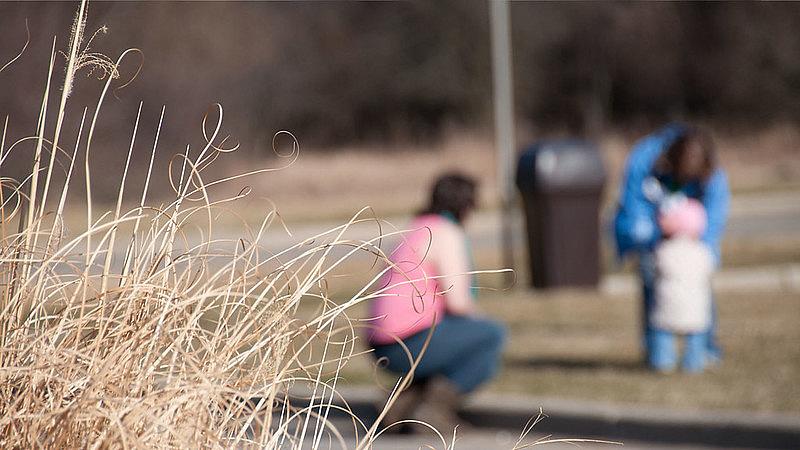What does the growing shared parenting movement mean for children’s well-being?

(Photo via Creative Commons/Flickr)
The shared parenting movement, which promotes the idea that both partners after a separation or divorce should have equal access to their children, has gotten increased attention in recent years. More states are considering and passing legislation that promotes 50-50 parenting time arrangements, instead of awarding primary physical custody to one parent and granting the other visitation. The idea is that children deserve to have relationships with both parents, even if the parents don’t get along anymore, and also that family courts help create conflict by pitting parents against each other.
The questions, however, are whether the courts should be enforcing such arrangements instead of having parents choose them for themselves, and whether the 50-50 model is truly the best option in the majority of cases. Some parents might have legitimate concerns, about allowing their former spouse that much access or worry about a child moving between two vastly different parenting styles, and the courts might not take those worries seriously when shared parenting is considered the ideal. The science is seriously conflicted on such questions, which makes some experts worry that some states are rushing by implementing shared parenting without further study.
Another complication is what such changes could mean in terms of equality between mothers and fathers. While it can be helpful for society to embrace the idea of parents having an equal role in their children’s lives, the reality is that in many intact families, mothers end up doing the majority of the work. Giving fathers equal access after separation could make these mothers feel like they’re losing out rather than gaining something. In a country without mandatory parental leave or free daycare — programs that could be an equalizing force — shared parenting seems like an arbitrary way to start making change.
On the other hand, some advocates argue that shared parenting helps mothers by not making them carry the full load after splitting up from a partner. Mothers would have more ability to devote time to a fulfilling career or a new relationship, both of which could allow for more resources for their children. Additionally, their children could benefit from having mothers who experience less stress from handling all the duties of parenting on their own.
Ideologically, shared parenting is complicated and brings together people from across the political spectrum. People’s opinions are often driven by what they experienced in their own families.
For my USC Center for Health Journalism National Fellowship project, I plan on examining the ideas behind this complicated type of family law reform. Family court judges, divorce lawyers, separated parents and researchers all have different takes on the effects of these laws. Some believe that they give helpful and clear guidance about what the outcomes of custody cases should be. Others believe they’re a one-size-fits-all solution that’s inappropriate for many families. My experience reporting the story so far has been a game of ping-pong. There are good points made by all sides of the debate.
At the heart of my story will be a couple that was nudged by a family court into a shared parenting arrangement. Theirs custody battle was as high conflict as any, so they offer a good test of whether shared parenting laws can encourage parents to get along for the sake of their children. Though their child’s pick-ups and drop-offs were rocky at first, eventually they accepted they were in each other’s lives for the long haul, and today they’re able to actively co-parent together. For them at least, the law helped to repair their relationship. Even if it weren’t mandated, today both would opt for such an arrangement on their own. Of course, my reporting is also informed by parents who felt family courts treated them unfairly and harmed their children by forcing them to spend time with an abusive ex-spouse.
Shared parenting is an experiment more people are trying out, even apart from state legislative changes, and I’m curious to explore what that means for children’s well-being.

